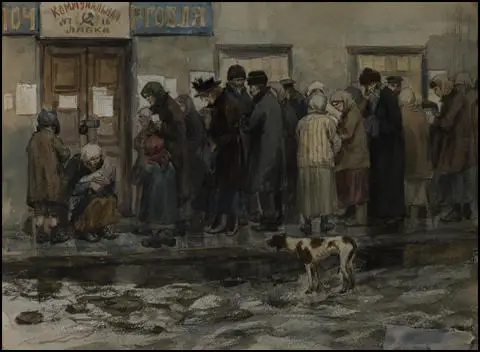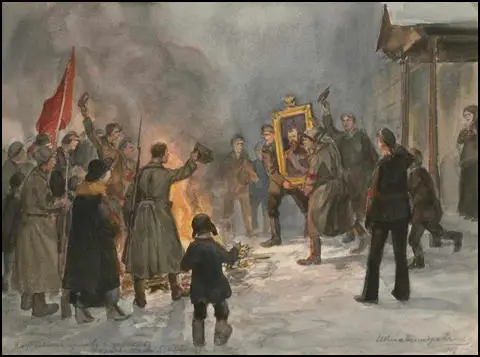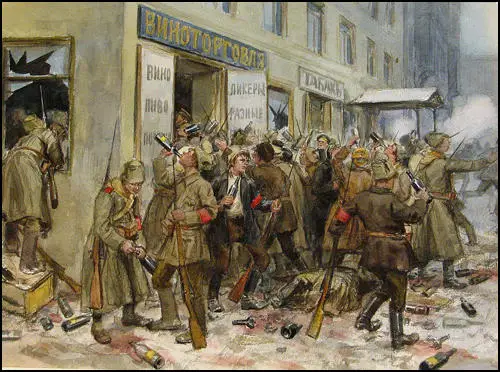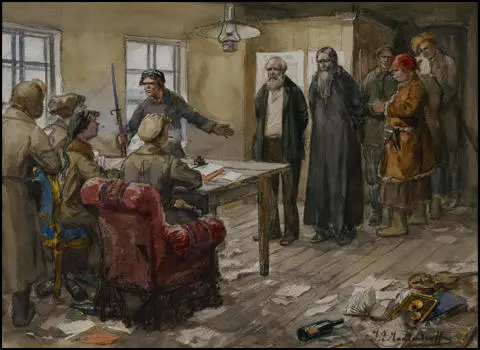Ivan Vladimirov
Ivan Vladimirov was born in Russia in 1870. During the First World War he was living in Petrograd. In his spare-time he created a series of paintings and coloured drawings about life in the city. After the abdication of Tsar Nicholas II he joined the the Petrograd militia and illustrated events in the Russian Revolution.
Ivan Vladimirov died in 1947.





condemned to death by a revolutionary tribunal. (1919)

Primary Sources
(1) John Reed, Ten Days That Shook the World (1919)
Week by week food became scarcer.... For milk and bread and sugar and tobacco one had to stand in a queue for long hours in the chill rain.... Think of the poorly clad people standing on the iron-white streets of Petrograd for whole days in the Russian winter! I have listened in the bread-lines, hearing the bitter, acrid note of discontent which from time to time burst through the miraculous good nature of the Russian crowd.
(2) Harrison E. Salisbury, Black Night, White Snow: Russia's Revolutions 1905-1917 (1977)
Cabs and horse-drawn carriages began to disappear. Streetcar service was erratic. The railway stations filled with vagrants and deserting soldiers, often drunk, sometimes threatening. The police force had vanished in the first days of the Revolution. Now "revolutionary order" was disintegrating. Holdups and robberies became the order of the day. Politically, signs of deterioration were everywhere. Kerensky moved into the Winter Palace and slept in the Tsar's bed, but most of the time he was whirling about the country, his frenzy and oratory less and less effective.
(3) Albert Rhys Williams, Through the Russian Revolution (1923)
A wave of reaction runs through the city. Insurgent regiments are disarmed. The death penalty is restored. The Bolshevik papers are suppressed. Forged documents attesting the Bolsheviks as German agents are handled to the press. Leaders like Trotsky and Kollontai are thrown into prison. Lenin and Zinoviev are driven into hiding. In all quarters sudden seizures, assaults and murder of workingmen.
Student Activities
Russian Revolution Simmulation
Bloody Sunday (Answer Commentary)
1905 Russian Revolution (Answer Commentary)
Russia and the First World War (Answer Commentary)
The Life and Death of Rasputin (Answer Commentary)
The Abdication of Tsar Nicholas II (Answer Commentary)
The Provisional Government (Answer Commentary)
The Kornilov Revolt (Answer Commentary)
The Bolsheviks (Answer Commentary)
The Bolshevik Revolution (Answer Commentary)
Classroom Activities by Subject
